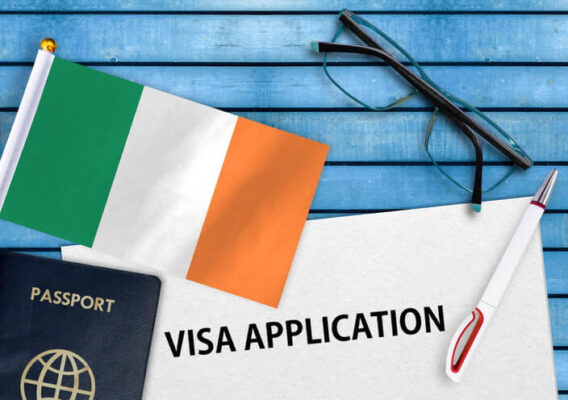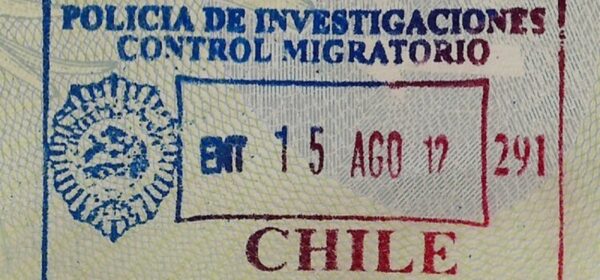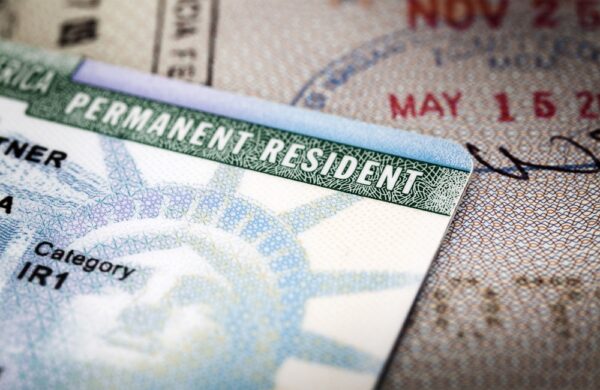Ireland is quickly becoming a popular destination for professionals from all over the world. A strong economy, friendly citizens, and breathtaking scenery. Who wouldn't consider Ireland immigration?
However, relocating to a new country can be quite daunting, considering the different rules and requirements. But don't worry; we'll explore the benefits of moving to Ireland and break down the visa types and requirements to help you make an informed decision about your Irish adventure.
Benefits of Immigrating to Ireland
1. Low Crime Rate
Ireland has fairly severe gun prohibitions compared to many other countries. There are only about seven civilian weapons per 100 persons. This indicates that Ireland has relatively low rates of violent crime overall and almost nonexistent rates of gun violence. It's a secure location to live which is why it’s one of the most popular countries to relocate to.
2. Dual Citizenship
Ireland immigration can also be your path to getting dual citizenship. As long as the other country accepts the possibility of holding dual citizenship, Irish immigrants can hold dual citizenship with that other country. Therefore, obtaining Irish citizenship does not always require renunciating your rights back home.
3. Healthful Lifestyle
Moving to Ireland allows you to engage in a variety of outdoor sports. Even a skilled worker needs time to cool off. Imagine engaging in outdoor activities while admiring breathtaking scenery. The countryside and coasts should not be overlooked. Ireland offers hiking routes, rural areas, national parks, and historical sites for camping enthusiasts to enjoy. Despite Ireland's modest size, the stunning road system will entice you to explore the stunning nation.
4. Education
Children between three and four are entitled to free education for a full year under the Irish educational system. Secondary and tertiary education in this country is among the best in Europe. Ireland and inhabitants of other European countries can attend universities for free thanks to the Free Fees Initiative. Irish immigration benefits both adults and children.
Ireland Entry Requirements
You might be required to apply for a visa if you are visiting Ireland and are not a citizen of the United Kingdom, Switzerland, or a nation in the European Economic Area (the EU plus Norway, Iceland, and Lichtenstein). An Irish visa is a certification added to your passport or other travel document that grants you entry into Ireland.
Regardless of duration, Ireland visas are just a pre-entry clearance. This implies that while you may be given a long-stay visa, entry into Ireland may not always be permitted. This applies to citizens of non-EEA countries. Immigration control still requires you to show your passport and supporting documentation when you reach the port or airport, and they still have the authority to deny you entry into Ireland.

Types of Irish Visa
1. Short Stay Visas
You must apply for a short-stay “C” visa if you plan to visit Ireland for less than three months. A “C” visa only allows you to stay for a maximum of three months. If you wish to return to Ireland, you must leave and apply for a new visa.
2. Transit Visas
If a national of a particular country wishes to switch their mode of transportation at an Irish seaport or airport and does not go through border control, they must apply for an Irish Transit visa. You cannot leave the port or airport with a transit visa.
3. Single-entry Visas
You can only enter Ireland once with a single-entry Irish visa; you can't enter Ireland again after you leave, regardless of your valid visa.
4. Multiple Entry Visas
Your initial visa is only good for one visit to the country. You will need to apply for re-entry visas each time you want to visit Ireland after leaving the country. You can apply for a multiple entrance visa if you have previously held a single entry visa and you have complied with its requirements. If you have regular business trips to Ireland, you may also apply. If you have a multiple entry visa, you can visit Ireland more than once while the visa is valid.
5. Long Stay Visas
You can apply for an extended stay “D” visa if you want to stay in Ireland for longer than three months, perhaps for employment, study, or permanent relocation with Irish-born family members. In short, this visa is for you if you’re considering Ireland immigration. You must apply for and obtain an Irish Residence Permit (IRP) if you are given a long-stay “D” visa and want to stay in the country for more than three months. Your intended purpose for staying in Ireland will determine what kind of long-term visa you need to apply for. As a result, there are four types of Ireland immigration visas, and each has their eligibility criteria:
Ireland work visa: If you've received a job offer or contract in Ireland, you must apply for an Irish work visa. This visa is for you if you intend to immigrate to Ireland for work purposes.
Ireland study visa: If you wish to come to Ireland to enroll in a study program that is on the Interim List of Eligible Programs (ILEP) or attend a higher education institution, you must apply for an Irish study visa.
Ireland family reunification visa: Any non-EU/EEA citizen who wishes to join a family member who is residing in Ireland must get an Irish family visa. The family member could be a civil partner or a parent.
Retirement visa: You must be able to sustain yourself financially and not be employed in Ireland to be eligible for an Ireland Retirement visa. Once you meet the residency requirements, this visa could also be your pathway to obtaining permanent residency.
Ireland Visa Requirements
Foreign nationals or non-European citizens need to have the following documents when they apply for an Ireland visa:
- Ireland Visa Application Form (AVATS)
- Passport-sized photos
- A valid passport
- Ireland visa application fee receipt
- Consent letter from employer or school.
- Evidence of your current and valid residence in the nation from which you are applying.
- Proof of accommodation
- Proof of sufficient funds
- Proof of return to your country of origin, such as a return ticket
- Details of friends or family in Ireland (A copy of their passport page and signature)
- Information on previous visas
- Letter about the purpose of travel
- Self-addressed envelope
Study Visa Requirements
Here are the documents you need if you’re immigrating for studies:
- Application form summary
- Two passport-sized photos
- Copies of previous passports
- Proof of accommodation
- A copy of the employment contract (if applicable)
- Proof of sustainability for the duration of the study
- A self-addressed envelope
- Valid passport
- Sponsor's bank statements
- An application letter that you have written, in which you include your full contact details and explain why you are visiting Ireland. Describe your family members, whether you are staying with them or not, if they are in Ireland or another EU country. Commit to abide by the terms and restrictions of the Ireland student visa and not to cause trouble for others while you're here. Give a justification for your choice of courses if they have nothing to do with your prior academic experience.
- An official acceptance letter sent by the Irish university
- Evidence that you meet the requirements academically to study the course you are enrolled in.
- Proof of paid tuition fees
- Proof that you are proficient in the English language
- If your course is taught in Irish, you will also need to demonstrate that you meet the language requirements in Irish
- If you are submitting a savings account, make sure to include a letter from the bank confirming that you and your sponsor are authorized withdrawals from the account.
- Proof of your health insurance policy.
- Proof of residence.
Work Visa Requirements
Here are the documents to provide for foreign nationals who want to immigrate to Ireland:
- A copy of the signed work contract
- Copy of your most recent immigration stamp if you were residing in Ireland at the time of application.
- Information about a contact person, including name, email address, phone number, and position within the firm.
- License or registration/pin of the company.
- A copy of the Enterprise Ireland/IDA letter of support, if one exists.
- Your employer's details, including name, address, phone number, and any applicable certifications from government-approved agencies.
- Specifics about your job, like your pay, duties, responsibilities, and duration.
Family Reunification Visa Requirements
According to the immigration policy, here are the documents a foreign national should provide to join a family member in Ireland.
- Medical insurance
- Copies of previous passports
- Copy of family member's Irish passport (if the relative is a citizen)
- Copy of family member passport pages, registration document, and work permit. (If the family member is a non-EU/EEA citizen)
- Letter of application containing reason for travel and information about family members.
- Proof of family relationship
- Proof of sufficient financial requirements
- Proof that you're dependent on a sponsor (if applicable )
Retirement Visa Requirements
Here are the documents for foreign citizens or non-EEA nationals who want to relocate for retirement:
- Proof of health insurance
- Copy of marriage certificate
- Copy of birth certificate
- Cover letter explaining the reason for application
- Means of subsistence like bank statements
- Details of Irish associations (Proof of relations if you're related to any Irish citizen)
- Police clearance certificate
- Health declaration
- Proof of finances
- Details of family members and their legal status in Ireland
Irish Visa Documents Guideline
1. The documents you submit must all be in the English language. If not, they need to be notarized and translated by a certified translator.
2. You are required to supply both the original and the translated versions of any translated documents.
3. Unless otherwise specified, you should send all of the documents in their original form. Therefore, while submitting documents, you must specify a return address.
4. Any letters you attach must be dated within four weeks of the day your application was submitted. Depending on the circumstances, the officials handling your application may need more documentation.
5. Before submitting these documents for processing, assemble them all and place them in a big, durable envelope.
Ireland Visa Fees
- Ireland single-entry visa costs €90
- Ireland multiple-entry visa costs €100
- Ireland transit visa costs €25
- Ireland study visa fees range between €80-€120
- Ireland work visa fee range between €500-€1000
- Ireland family visa fee range between €60-€100
The application form summary will tell you how to pay the visa cost if your online application for an Ireland visa through AVATS needs to be submitted in person at an Ireland Embassy, Consulate, or Visa Office.
If your application needs to be submitted in person at the Visa Office in Dublin, you will need to pay by bank draft, which you should send to the Department of Justice and Equality. The money has to be paid in euros.
How to Apply for an Ireland Visa
The application process is quite simple for acceptable applicants. Here’s what you have to do:
- Fill out the visa application form online. Make sure to print and sign it. You'll find an 8-digit reference number on the first page of the summary sheet. Keep the reference number.
- Submit the form along with all necessary documents to the nearest VFS (Visa Facilitation Services Global) Office. Your fingerprint will also be taken at the office.
- Wait for a response.
Ireland Visa Processing Time
General visas take about 30 working days to process. Long-stay visas take two months, except for family reunification visas, which take three months. Also, remember to submit your application on time.
Conclusion
Ireland immigration is an excellent move toward a new life. All you need to do is apply for a visa and meet some requirements. Once you do, you can enjoy Ireland's vibrant culture, beautiful landscapes, and strong economy, making it a popular destination for a new life.















